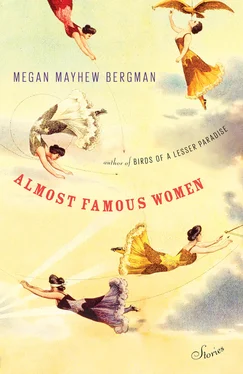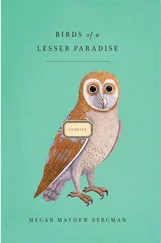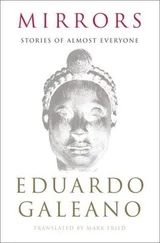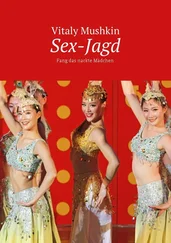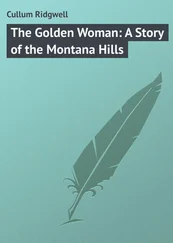Saving Butterfly McQueen: I don’t remember how I first heard of Butterfly, but when I found out that the Gone With the Wind star was an atheist, and had hoped to donate her body to science, I was intrigued, and couldn’t help but imagine the waves of patronizing conversation she must have endured.
Who Killed Dolly Wilde?: Joan Schenkar’s biography of Dolly Wilde, Truly Wilde , opened a door in my imagination, perhaps because she invited her readers to do just that, ending the introduction this way: “I have only been able to bring her to you complete with missing parts. It remains for you to do what Dolly could have done so beautifully for us all: Imagine the rest.” Other sources include Oscaria , the private volume of recollections Natalie Barney had printed in Dolly’s memory, which I am thankful for Bennington Librarian Oceana Wilson’s help in obtaining access to. Additionally, Neil McKenna’s The Secret Life of Oscar Wilde and Richard Ellmann’s biography.
A High-Grade Bitch Sits Down for Lunch: When my mother-in-law passed away in 2009, it took me two years to read her favorite book, West with the Night . My mother-in-law was brave and athletic, a horsewoman, a young pilot, and a motorcycle-driving veterinarian — like Beryl Markham, a boundary breaker. I now teach Beryl’s memoir, and celebrate the fact that it’s one of the few books where we see a woman portrayed as an active hero of her own adventures with the absence of a central love story. While Beryl was a record-breaking pilot and author (not without authorship controversy, mind you), she was also Africa’s first female certified horse trainer, a feat that required grit, fearlessness, and athleticism. I like to see women working in literature, using their bodies.
I also read biographical work on Markham from Mary S. Lovell and Errol Trzebinski, as well as Juliet Barnes’s The Ghosts of Happy Valley.
The Internees: While researching an article about environmentalism and makeup, I came across an anecdote about the boxes of lipstick from Lieutenant Colonel Mervin Willett Gonin, who helped liberate the Bergen-Belsen concentration camp in 1945. Later, a friend, Henry Frechette, sent me the picture of Banksy’s visual reinterpretation of the internees wearing lipstick. This, to me, is an unpretty and profound take on fame and femininity.
The Lottery, Redux: I was asked by McSweeney’s to write a “cover story” of a classic, and I chose Shirley Jackson’s “The Lottery,” because it’s the first short story I remember reading, and I drive past her house in Bennington often. I knew I wanted to give homage to it with a matriarchal lineage in mind, and the idea that we pay for the mistakes our forebears make.
Hell-Diving Women: Oxford American asked me to write an essay on the International Sweethearts of Rhythm for their annual music issue. I had the pleasure of losing myself in research, and then finding out that the band played long ago in my hometown of Rocky Mount, North Carolina. After the article I found myself still dwelling on the material, and wanting to write a story. For further research, see D. Antoinette Handy’s (out of print) biography on the Sweethearts and Jezebel Productions’s short documentary Tiny and Ruby: Hell-Divin’ Women (the name of Tiny and Ruby’s post — World War II band).
There are other books which have enriched my imagination, including but not limited to: Becoming Modern: The Life of Mina Loy by Carolyn Burke; The Well of Loneliness by Radclyffe Hall; Women of the Left Bank by Shari Benstock; Nightwood and Ladies Almanack by Djuna Barnes.
Thanks to the editors and journals who published these stories, particularly David Haglund at PEN, Caitlin Horrocks and David Lynn at The Kenyon Review , Sven Birkerts and Bill Pierce at AGNI , Dave Daley at FiveChapters , Desiree Andrews, formerly of Tin House , Beth Staples at Ecotone , and Daniel Gumbiner at McSweeney’s .
My gratitude to my phenomenal agent, Julie Barer, and the rest of Team Barer, William Boggess and Gemma Purdy, who are as talented as they are supportive. Thanks to my brilliant editor and friend, Kara Watson, and the rest of the Scribner team, for being enthusiastic about another round of stories.
And all kinds of thanks to my family, particularly Mom, Dad, Emily, Evans, Sarah, John, Bob, and the rest of my tribe in Shafts-bury, like Tammy and Kathy, who help keep the ship afloat. It is a strange and beautiful ark, with toothless cats and old dogs.
To my husband, Bo, thank you for your equanimity, support, and love. And my ferociously smart daughters, Frasier and Zephyr, there is very little peace in your toddler ways, but endless inspiration. We are bolder together.

© BO BERGMAN
MEGAN MAYHEW BERGMAN is the author of Birds of a Lesser Paradise. Her work has appeared in The New York Times, The Best American Short Stories, New Stories from the South, McSweeney’s, Tin House, and Oxford American, among other publications. She writes a sustainability column for Salon and lives on a small farm in Vermont with her veterinarian husband, two daughters, and many animals.
MayhewBergman.com
MEET THE AUTHORS, WATCH VIDEOS AND MORE AT
SimonandSchuster.com
authors.simonandschuster.com/Megan-Mayhew-Bergman
